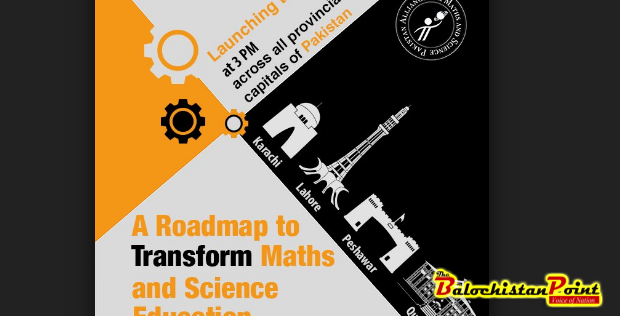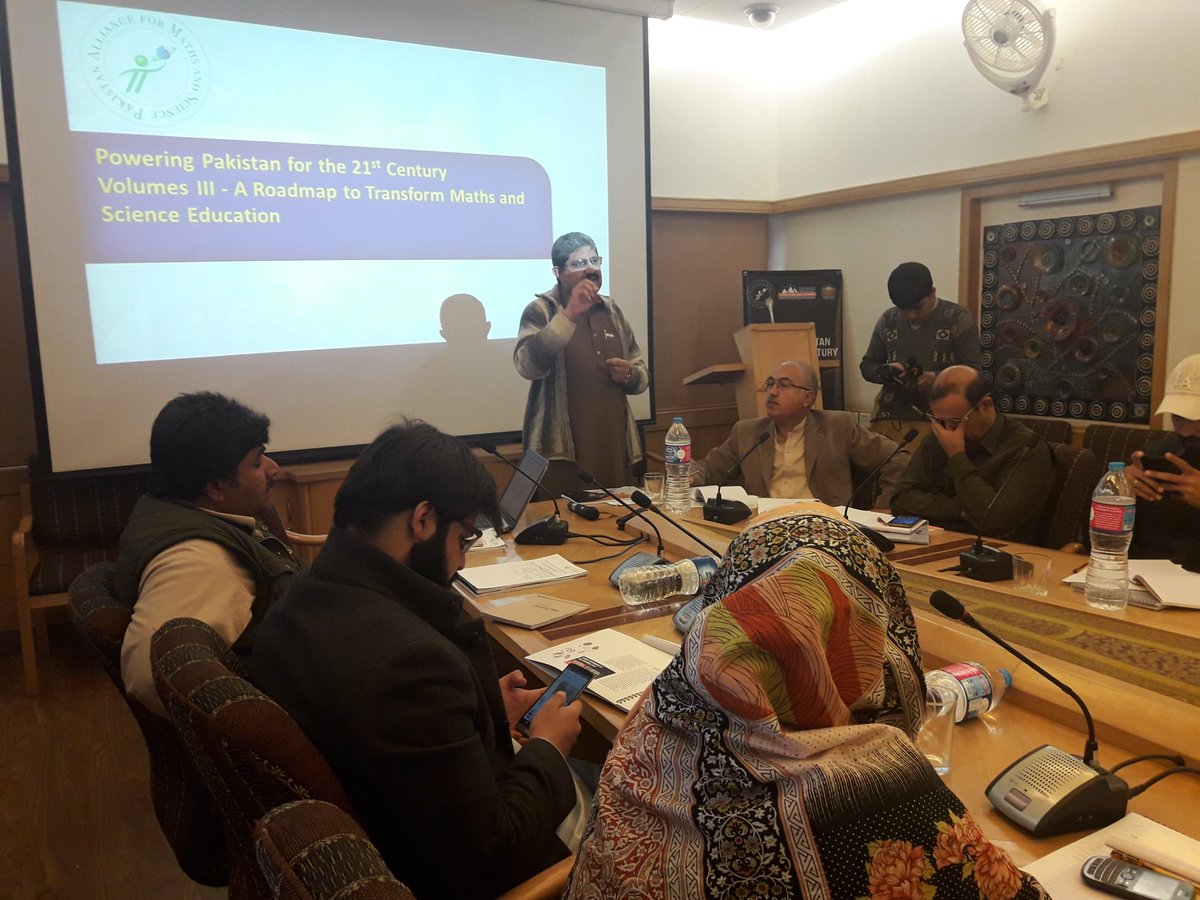Quetta: Pakistani schools (especially government schools) are producing unacceptably low levels of learning outcomes in maths and science. This represents a significant and deep-rooted challenge to Pakistan’s economic growth.
- The average maths score for Class VIII students in the National Education Assessment System (NEAS) exams conducted in 2014 was 461 out of 1,000
- The average maths score for Class IV students in the NEAS exams conducted in 2014 was 433 out of 1,000
- In Balochistan, the 2014 NEAS survey reports that the average Science scores for class IV students are 40.2%
- In the Balochistan, the 2014 NEAS survey reports that the average Maths scores for class VIII students are 42.2%
Other than the NEAS data, there are no statistics available for middle school learning levels for children in Balochistan
As of today, Pakistan does not provide the children of the least privileged parents a decent maths or science education.
The Pakistan Alliance for Maths and Science was formed to work with the government to tackle the challenge of improving maths and science education in our schools, particularly government schools where the children from poorest families are enrolled. The Alliance has 48 members to date from the profit and non-profit sectors and is growing every day.
Powering Pakistan for the 21st Century is a three-volume document compiled by researchers and education activists mobilised by the Pakistan Alliance for Maths and Science (the Alliance), under the patronage of a range of government and non-government organisations.
The purpose of the Powering Pakistan for the 21st Century document is to highlight the importance of maths and science education in Pakistan’s classrooms, especially those in
Government schools, where the least privileged of this country’s children study. In doing so, the Alliance seeks a robust set of actions by governments, both federal and provincial, that help transform maths and science education in Pakistan.
Volume I was titled ‘How Maths and Science Power Nations’. The Prime Minister of Pakistan launched this volume on January 27, 2016. In it we presented the case that maths and science are essential informants of a nation’s economic progress and prosperity.
Volume II was titled ‘The State of Maths and Science in Schools’. It was launched on February 13, 2017 through a digital event. In it we summarised the state of maths and science education, the effort being invested in it, and the results being achieved. We also presented a framework to help explain why the state of maths and science education is as it is, and how the status quo has come about.
Volume III is titled ‘A Roadmap for Transforming Maths and Science Education’. In this volume we will present ideas and recommendations that can help Pakistan, as a state and a society, re-orient public policy and private investment decisions to serve a brighter, more prosperous and more secure future.
A Roadmap for Transforming Maths and Science Education is a summary of ideas and recommendations that can help alter the quality of maths and science education available to Pakistani children. The basis for the roadmap is a framework of analysis for the problems in maths and science education, as presented in Volume II of Powering Pakistan for the 21st Century. This framework highlights the problems in maths and science education, from the very big-picture, macro-level issues to the issues inherent to the individual experience of children in the classroom, and with learning material. The recommendations in this document are presented within the context of existing efforts to improve the situation, either specifically with respect to maths and science, or more generally within the education sector.
For Balochistan, the Balochistan Rural Support Program (BRSP) in collaboration with Society for Community Strengthening and Promotion of Education in Balochistan (SCSPEB), is launching the Roadmap on March 10, 2017. The best and brightest of Pakistan’s maths and science community have come together to provide the federal and provincial governments with comprehensive recommendations on how to improve the maths and science learning in government schools immediately, in the short term as well as the medium term.
In Balochistan, despite substantial increases in the education budget since 2013, no significant effort has been made to link the investment to either learning outcomes or how teachers teach in the classroom. Furthermore, there is no specific designation at the middle and high school levels for maths and science teachers. On a more positive note, however, 2017 is the first year where in tests were conducted across the province to measure learning outcomes.
Staff Reporter
Published in The Balochistan Point on March 12, 2017
 Balochistan Point Voice of Nation
Balochistan Point Voice of Nation





